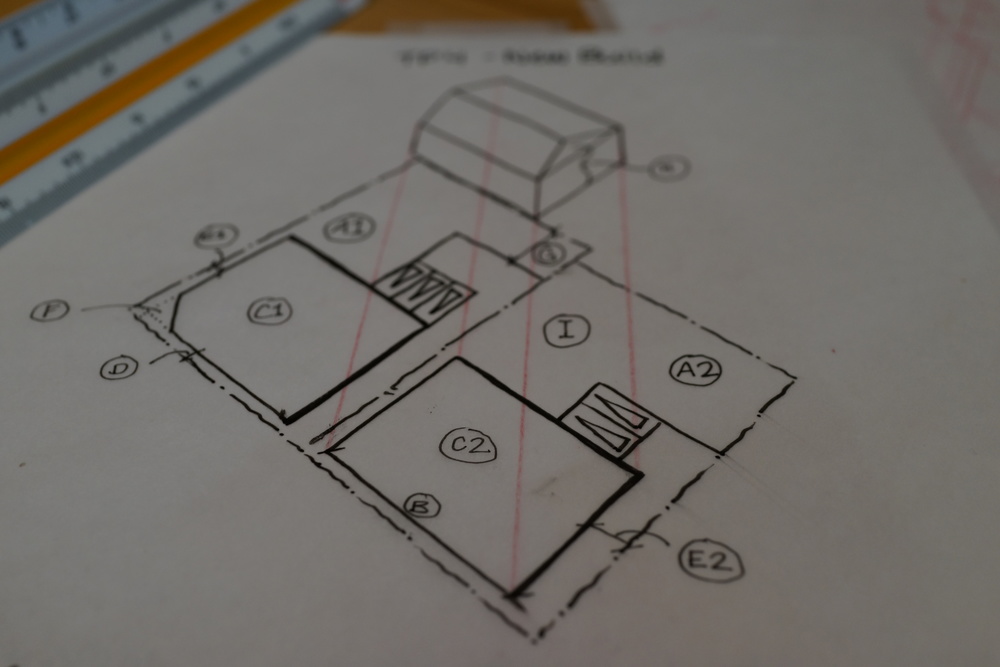How to Get Started as a Small-Scale Developer
Help us double our readership this week. As you savor our greatest hits, take a second to share them with someone else.
When I hear the question “How do I get started as a developer?” it's usually followed by a string of questions which amount to, “Could you just draw me a map that will guide me through every detailed step to becoming a developer?”
The work of the Incremental Development Alliance's real estate training program is focused on helping people become small developers and helping them learn how to build great places incrementally.
People who are interested in this line of work come from a wide range of starting points. A lot of them already have a fair amount of skill in one aspect or another of the built environment. They have been a contractor, broker, planner, activist, architect, or property manager. They know enough about how things work to recognize that they have a lot to learn outside of the field that originally led them to development.
Lately I have been grouping the skills I think a developer needs into 7 groups:
Source: Gracen Johnson
1. Site selection, urban design, site planning and civil engineering
The price paid for securing land is the single most critical variable in beginning stages of a real estate project. Therefore, understanding what the site can and cannot do and how a building sits on the site to create value are paramount considerations. These four connected skills help a developer compare many sites against each other, fit in with the neighborhood, and deal with soil, water and utility conditions.
2. Entitlements
This term refers to what the owner of the land is entitled to do with it, which is typically governed by the local municipality's zoning code. A developer must evaluate what can be done with a site under the existing rules of setbacks, parking requirements, building size and height — or measure the risk associated with changing its classification or getting a variance. Equally as important as the written word is knowing the people who administer the processes involved in obtaining approvals.
3. Real estate deal structure, pro formas and finance
Money and contracts are the heart of any real estate project. In a typical arrangement, the project has an operating partner — the person in charge of the whole process — and a capital partner — the person supplying seed money for a percent return on their investment. Together, they will seek additional financing from a bank or other entity in the form of a loan. A pro forma is a spreadsheet that tracks how the development makes money in rent or sales and how that income is distributed to its partners and the bank.
4. Building design
Otherwise known as the architecture, electrical, mechanical and structural engineering, this is the know-how that makes a building perform well and be dignified. A deep understanding of building codes can help the small developer optimize the size and functionality of individual units while avoiding costly construction methodologies or mechanical systems. Context appropriate exterior detailing and quality material selection can both gain favor with the neighbors and help the building stand the test of time.
Source: Johnny Sanphillippo
5. Construction and construction management
There are two key groups who make the construction or renovation of a building happen: skilled tradesmen and project managers. Leveraging the knowledge and work effort of the electricians, plumbers, welders, carpenters, roofers and installers is either a general contractor or construction manager. Regardless of the size and type of project, small developers need to carefully manage the process and risks involved in construction with thorough planning and contingency reserves.
6. Marketing, sales, leasing and property management
Once you have a building, it must be sold or frequently leased and maintained. Real estate agents and brokers handle many of the steps to attracting tenants or buyers and prepare the appropriate paperwork to ensure qualified applicants. If the developer is retaining ownership of the property, someone must answer the calls to unplug toilets and plan for big replacements like water heaters and roofs. That's the realm of a property manager.
7. Project and business management
There are many details to keep track of and people to communicate with to make a real estate project move forward. Also, someone needs a good handle on business finance to guide the cash flow throughout the lifecycle of a project. The small developer needs to make intentional decisions about where along the development process they will make money and structure their tax and business arrangements to maximize those positions.
---
Very few people master all of those skills. If you start with small projects, you can gain an overview and understanding of when they are needed at the various stages of a project. You'll get a sense of the basics for each skill set.
If you don’t have the skill which the project requires, you can’t go without, so you should borrow or rent it. Look for people who are genuinely interested in your project and who are actually happy to teach you about their specialty. A developer does not have to know everything, but they should have a good idea who to call or team up with before it is too late.
We are looking for people committed to building Strong Towns who are happy to work in one or more of the 7 skills sets. They will evolve their skill sets to become a small developer themselves or be the mentors or colleagues to encourage those on the path.
If this message matters to you, share it with someone.
To learn more about becoming a small-scale developer:
- Visit our Small Scale Developers page.
- Sign up for a bootcamp led by the Incremental Development Alliance.
- Join the Small Developers/Builders Facebook group (an activity community where you can get feedback and share ideas).
(Top image source: Johnny Sanphillippo)


